I’ve heard about the benefits of sleep and keeping a sleep diary for over 20 years but it never seemed like something I should do. That was, until, I was so sleep deprived that I could no longer think straight! Years of going back and forth the doctor, only to be told I was depressed (ok, I am a little, but that’s for another day), or just have a few nights of sleeping pills, or that I needed to exercise!!
In September 2019, whilst flicking through some work emails, fate decided to slap me in the face. There it was, a free 8 week sleep course run by Sleepstation. Finally, someone was listening to me and actually helping me sort my sleeping pattern out once and for all. I’m lucky enough to work for a company that values mental health and well-being who promotes various tools to help in these areas.
What is a sleep diary?
One of the first things I had to do was complete a sleep diary every night for a week so they could analyse my current sleep situation. I was sceptical at this point, like what can they tell me that I already don’t know. I’m having trouble sleeping, duh!!
But what goes in it? I’d never done one before; do I try and relay all of my weird dreams? In fact, it is a fairly painless task. Here is what I recorded:
- Time I went to bed
- Time I fell asleep
- Any disturbances in the night and their cause (bad dream, restlessness, pain, etc)
- How long (roughly) were the disturbances?
- When did I wake up?
- What time did I get out of bed?
- How did I feel when I woke up
Benefits of Keeping a Sleep Diary
A sleep diary is your first step if you suffer from disturbed sleep, light sleep, or any other form of sleep deficiency. Without a sleep diary it will be impossible to try and get to the root of the problem/s. Your GP should ask for a sleep diary if you seek help from them as pills shouldn’t be given out at the drop of a hat and are not along term solution. Sleep diaries are good for:
- Identifying patterns in sleep behaviour (same time, days)
- Highlight opportunities for improvement (bedtime routine)
- Understand the cause of the sleep deficiency (stress, overthinking, too much caffeine)
- Help identify underlying health conditions (sleep apnoea, insomnia)
- Assess the quality of sleep
My Sleep Therapy
I cannot thank Sleepstation enough for this course. My sleep has improved tenfold, even with less time in bed I can feel like I’ve had the best night sleep possible. It was a tough 8 weeks and I was sceptical that it would work. Even if you think you’ve tried all these techniques, you’d be surprised at how well they work when you get given the right ones for your sleep disturbances.
The hardest bit was the sleep deprivation fortnight! I know, like I wasn’t getting enough sleep at this point, and they wanted me to have even less! When it worked I was shocked, and when you do the reading behind it, it makes a lot of sense. I had to reset my whole sleeping pattern so one of the first steps was to completely wipe my slate clean. Limiting my time on bed to 5 hours for the first week (week 2 of the actual course), then increased to 5.5 hours in week 2. Whether I slept of not, I had to get out of bed. I was literally crawling and acting like a stroppy teen whinging that I wasn’t ready to get up!! By this point I was so tired that it was taking less than 10 minutes for me to fall asleep after this.
Then the following weeks was slowly building up the time in bed, trying out other techniques based on my diaries, and also continuous help from my sleep coach throughout the week. You can see from my sleep report that my quality of sleep improved significantly in just 8 weeks, following the advice and techniques given to me. It is now over a year later and I can say my sleep is still amazing (see my Fitbit chart below from Nov ‘20)
How do I monitor my sleep?
As soon as I knew I was going to do this course, I invested in a decent Fitbit that tracks sleep. That way I didn’t need to look at a clock every time I woke up (something I was advised not to do) as my tracker would detect that for me. Filling out the sleep diary was much easier as the Fitbit collected all the data for me, all I had to remember was why I woke up each time. The silent alarm is a great function for waking up instead of a screeching alarm clock (which has since been retired to the bin). It vibrates on your wrist, scaring the life out of you, waking you up like someone has just given you a shot with a defibrillator! Anyway, it certainly gets your heart racing if you’re in a state of deep(ish) sleep.
If you are a Fitbit premium member then you’ll get a more in-depth analysis of your sleep, but I’m quite content with the basics. I aim for about 7 hours of sleep each night, but I feel rested and energised anywhere between 6.5 and 8 hours. When I’m sleeping more, I know something is going on, either with my mental health or sleep. Then I can investigate and sort it out quickly.
What if I haven’t got access to these services?
There are a number of ways to access the Sleepstation courses:
- Check if your employer funds these courses with Sleepstation (i.e. Civil service through the CS Charity)
- Check your professional body as some will provide funding for this service
- Get a referral through you GP (England NHS only)
- Paid subscription
If you don’t want to complete the course then you can find templates online for sleep diaries, or make one yourself using the information in this post. There is some basic information on their website as well, but not too much as they want you to complete the course.
Some decent websites for more information on improving sleep are:
British Snoring & Sleep Apnoea Association
Additional Factors to Consider
Just like mental health or lifelong learning, it is something that you need to keep on top of. It is easy to have a few nights bad sleep and slip back into your old habits. Here are some things to consider:
Mattress – you should replace your mattress every 8 years. A poor mattress can cause health issues including sleep problems.
Sleep hygiene – your bedtime routine. Simple tweaks such as not using your phone an hour before bed can make all the difference. Trial and error will help identify what works for you.
Sleep technology – there are loads of gadgets out there these days to help with sleep such as trackers, scented gadgets, and light aids. I don’t use any personally so can’t recommend any (apart from Fitbit, which I love).
Meditation – can be part of your sleep hygiene. I use Insight Timer and love it. There is plenty of choice with over 70k free sessions. Other apps include Calm, Headspace, and Buddhify, to name a few.
Podcasts – my library on Spotify is growing strong. As well as normal interview style podcasts I also have sleep ones on there. Obviously don’t put a jamming podcast on, or some strongly debating one, which will get you all fired up!
Journaling – clearing your mind of the day’s activities will help you sleep. I have a bullet journal so I can be creative; the drawing and colouring is peaceful and helps my mind calm down.
Anyway, I’m sure I’m sending you to sleep with this post so I will leave you with this Irish proverb.
A good laugh and a long sleep are the best cures in the doctor’s

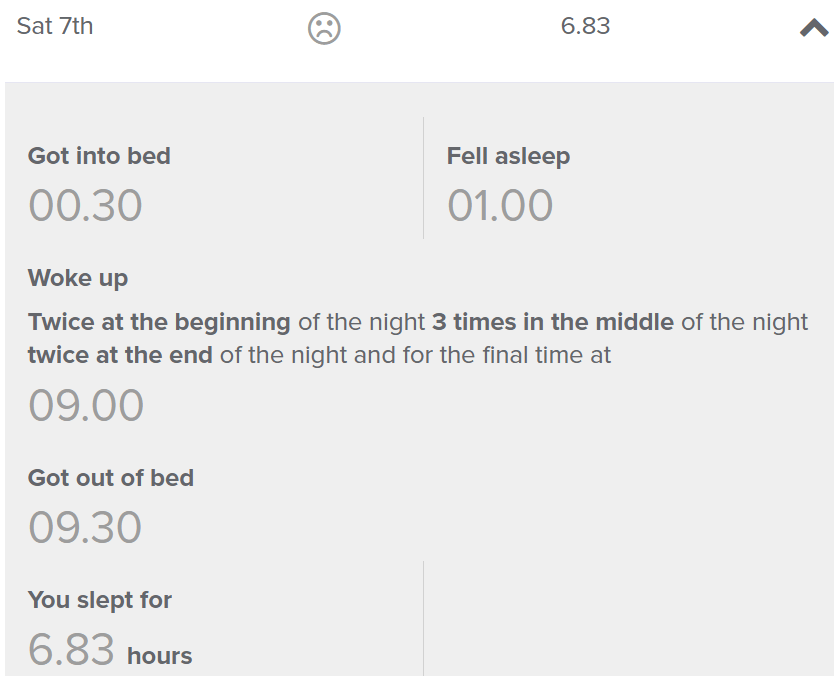
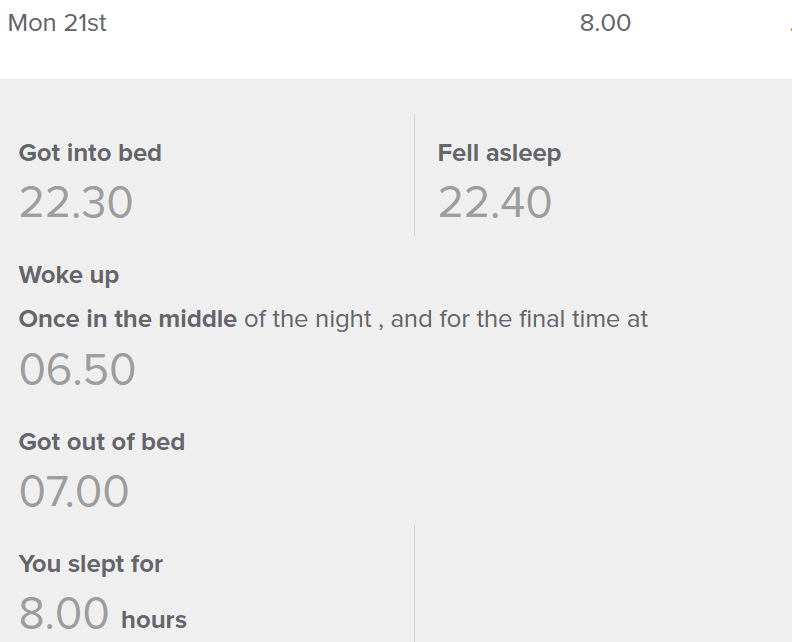
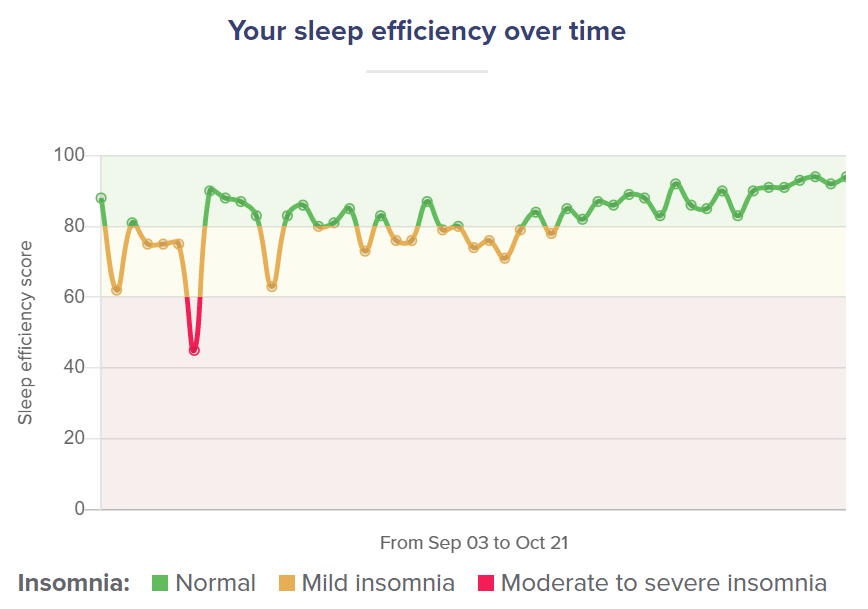

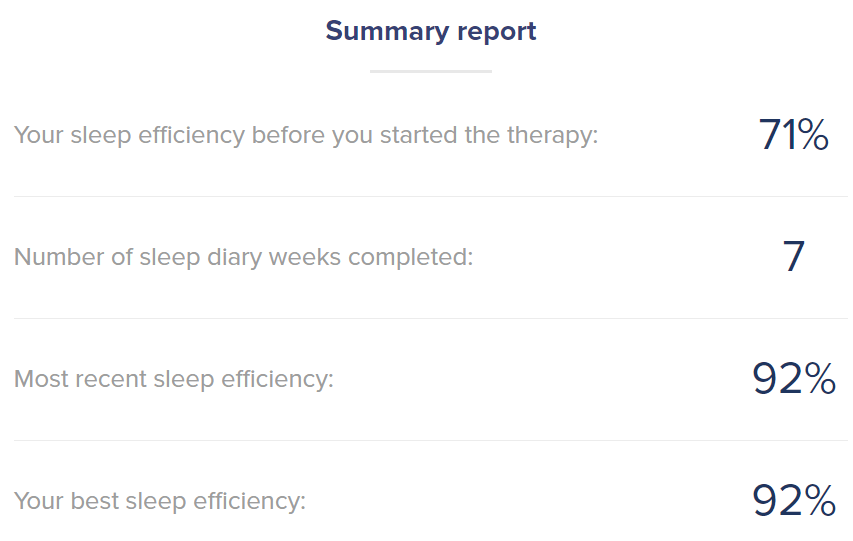
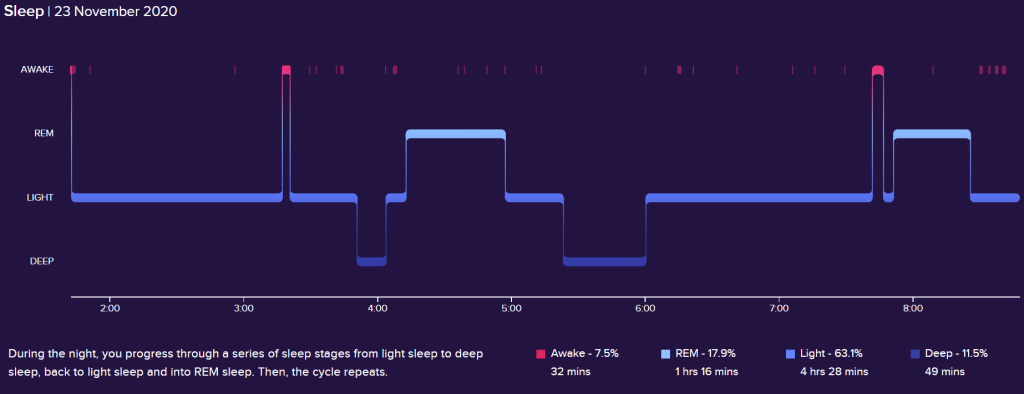
I think I need to start a sleep diary because I have been having problems sleeping. I have recently been diagnosed with fibromyalgia and my sleep is really being affected. Thank you for sharing this.
Lauren
LikeLiked by 1 person
Ah, I’m glad you liked it. Sorry to hear about your illness. Doing this sleep course was the best thing I ever done. When I started I was only getting about 5% deep sleep but now I’m always in the normal region. The sleep diaries definitely help. Le mte know how you get on 💜
LikeLiked by 1 person
Thank you so much! ❤️
LikeLiked by 1 person
I know that I don’t get enough sleep, but I have a hard time making myself go to bed early (or even on time). Learning about the benefits of sleep and the consequences of sleep deprivation helps.
LikeLike
This looks amazing! I’m glad to hear that it’s really worked for you, I might give it a go myself as I’ve also had trouble sleeping recently x
LikeLiked by 1 person
It’s definitely worth a try. I’ll be writing another post soon about sleep hygiene so that may be something you need to think about as well.💜
LikeLike
This is a really helpful post and something I think I might look into. I have no trouble actually falling asleep but I don’t think I’ve had a full night’s sleep without waking up at least once in around 10 years. I tend to wake up around 3/4 times in the night and I have no idea why really? I have a night-time routine, I don’t check my phone before bed x
LikeLiked by 1 person
I was the same, never staying asleep and seemed to never get much deep sleep. 💜
LikeLike
The newest Fitbit technology really does provide great information (my son has one, I have an older model which doesn’t provide much information). Sleep is definitely something my family deals with and your information is helpful. Thanks for sharing.
LikeLiked by 1 person
Glad you find it helpful. I never realised just how much it can impact your life until I sorted it out. 💜
LikeLike
I know that I don’t get enough sleep, but I would like to change that to improve my chances of staying healthy! Adequate sleep is so important! A sleep diary sounds like a good idea.
LikeLike
The sleep diary will definitely help identify where you can make changes. Hope this post helps you ❤
LikeLike
This is such a helpful post! I have been struggling with insomnia since I was younger and never truly managed to get rid of it for a long time. I never thought about keeping a sleep diary! Thank you so much for sharing x
LikeLiked by 1 person
I was the same, and the sleep diary helped so much. Hope it helps you as well 💜
LikeLike
Great post with lots of information! I didn’t even know this was a thing but I think I could use this with my clients who have the same problems.
LikeLiked by 1 person
Glad you found it helpful. Such a simple, yet effective tool 💜
LikeLike
This was absolutely fascinating, I’d never thought to document it in this way! I’ll be looking at my sleep much more closely! All the best, Amy at amymarshment.com xx
LikeLiked by 1 person
I hope you find it helps, it certainly does for me. 💜
LikeLike
I usually sleep well, but with the lockdown and such I have found myself going to bed later and getting up earlier, so I’ll start keeping a sleep journal. Thanks for the great post 🙂
All the best, Michelle (michellesclutterbox.com)
LikeLiked by 1 person
I usually sleep well, more so during the lockdown as I have been having a lot of lie ins! This is such a helpful post Fiona x
Lucy | http://www.lucymary.co.uk
LikeLiked by 1 person
Glad you found it helpful. It’s amazing how much difference a few small tweaks can make 💜
LikeLike
I usually sleep on time and get up earlier but due to lockdown my sleep cycle has changed and now I go to bed earlier but I do not get sleep so fast. Now I think I must keep some sleep journal by my side while I go to bed.
LikeLike
Such a helpful post, I will most definitly be looking into including a sleep diary in this months bullet journal!
LikeLiked by 1 person
It’s such a simple but useful tool. It worked wonders for me 💜
LikeLike